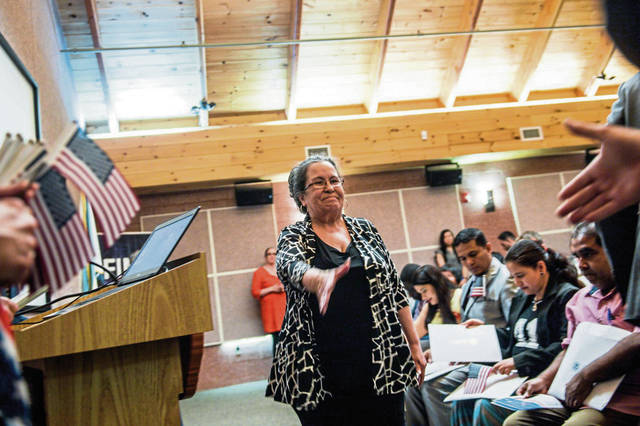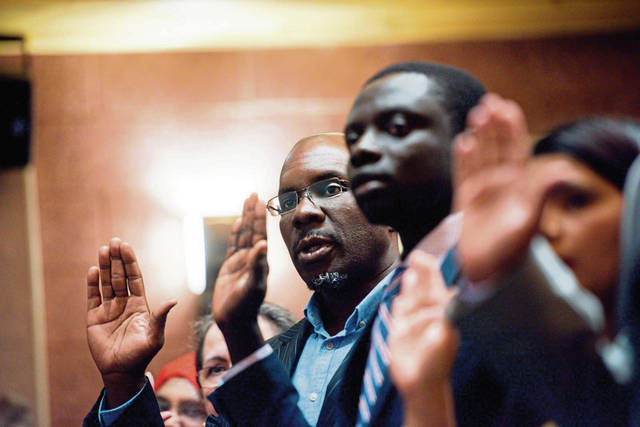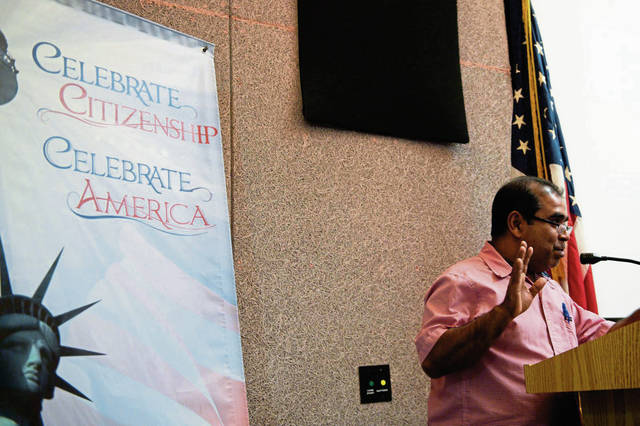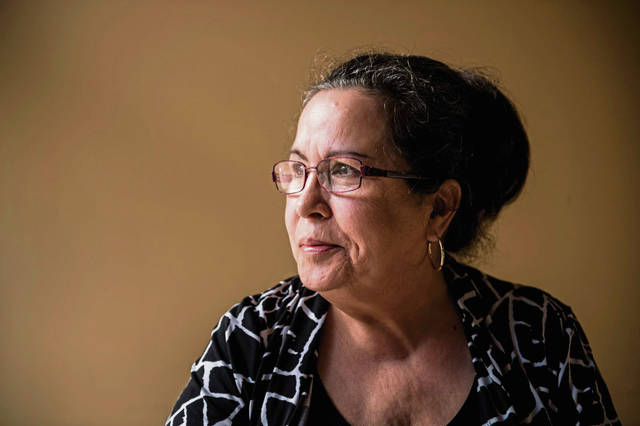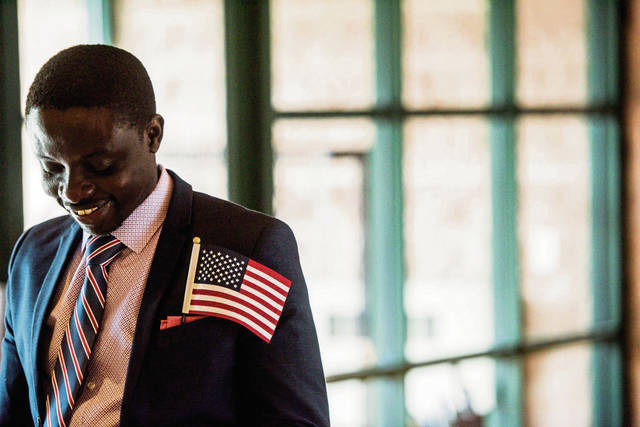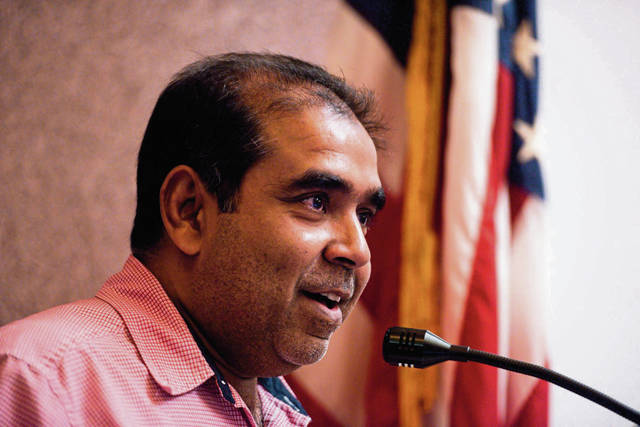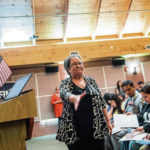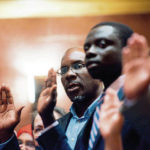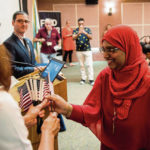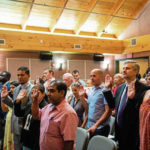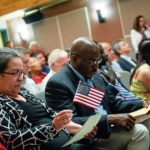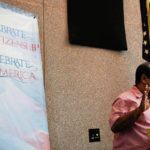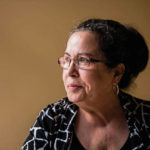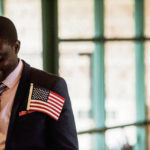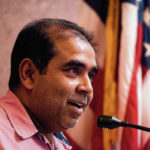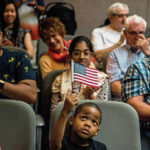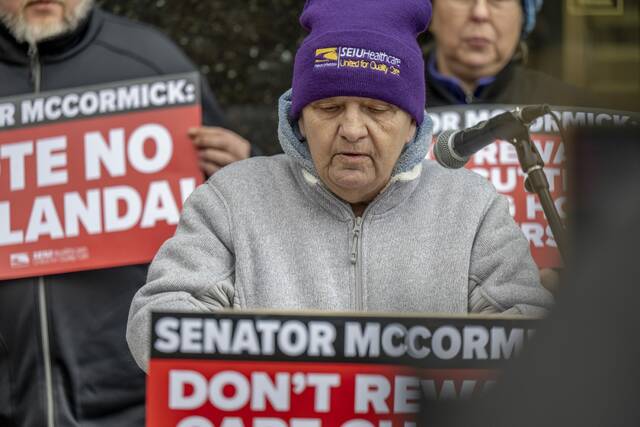Isabel Sowinski’s birthday on Monday will be a special, once-in-a-lifetime event for the Plum resident.
For the first time in her nearly 69 years, the Cuban-born Sowinski will celebrate her birthday as an American. On Wednesday, she became a naturalized citizen during ceremonies the U.S. Citizenship and Immigration Services conducted before about 100 people at Fort Necessity National Battlefield near Farmington, Fayette County.
“This is a great birthday present. It doesn’t get any better than this,” Sowinski said following the 50-minute ceremony at the site where George Washington and his troops surrendered on July 3, 1754, to a French and Indian force in the opening volley of what would become known in her new country as the French and Indian War.
Sowinski was one of 22 people from 13 countries — as diverse as Bhutan, Cameroon, Pakistan, Ghana, Israel, Nigeria and Russia — who “stepped up and joined the greatest club in the world” by going through the naturalization process and becoming citizens, said Brian Reedy, site manager at Fort Necessity. The Citizenship and Immigration Services has conducted naturalization ceremonies at Fort Necessity for about a decade, timing it on the anniversary of the battle.
Now that they are members of that “greatest club,” Michael Horvath, field director of the Citizenship and Immigration Services’ Pittsburgh office, reminded them they need to be responsible citizens and vote.
The new citizens who have brought their worldwide experiences to the United States, however, should not “surrender anything from your culture and traditions,” Horvath said.
One of the amazing parts of Sowinski’s journey to citizenship is that she has been in the country since December 1961. Her parents, not wanting their children to live under Fidel Castro’s harsh Communist rule, put 11-year-old Isabel and her nine-year-old sister, Olga, on a plane in Havana, bound for an orphanage in Toledo, Ohio.
They made it to the United States under President Kennedy’s Cuban Refugee Program, which helped relief agencies assisting the resettlement of the refugees. It would be a year before her parents were able to emigrate to the United States, settling in Lawrence, Mass. Only then could the family be reunited. Her parents never returned to Cuba and neither has she, fearful she would not be allowed to leave, Sowinski said.
Sowinski decided to become a citizen now because she wanted the right to vote, a right “which most Americans take for granted.”
“I believe things are getting a little too rough now,” Sowinski said, without further political comment.
Some of the new citizens came to the United States to pursue an education.
For Kanwal Rabbani of Pittsburgh, who emigrated from Islamabad, Pakistan, the opportunity to attend college in the United States was an important reason for her journey.
Rabbani, 25, who has been in the country for about 10 years, is studying information technology at Community College of Allegheny County.
Mizanoor R. Biswas, 53, of Pittsburgh’s Friendship neighborhood, came to the United States in the mid-1980s as a college student from Bangladesh’s capital city of Dhaka. He is the owner of commercial real estate in the Pittsburgh area.
Biswas had a green card affording him rights as a permanent resident but decided it was time to go through the process of being a citizen.
“It gives you more flexibility,” and gives you the right to vote, Biswas said.


